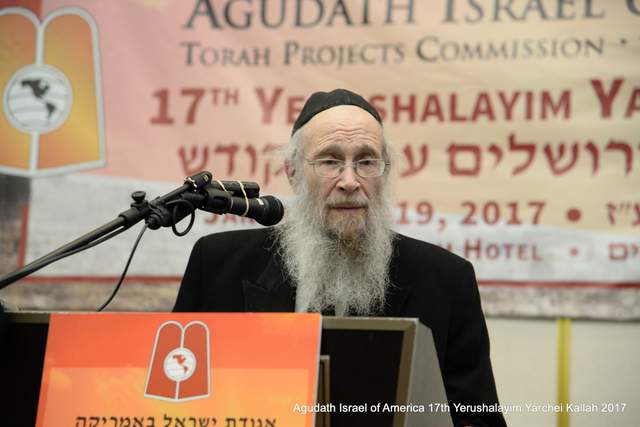NEWS
HaRav Yehoshua Eichenstein shlita on Preparing for Yom Kippur
by HaRav A. Cohen

They tell of HaRav Boruch Ber of Kamenitz who was once ill during Aseres Yemei Teshuva. The doctors ordered a blood test to determine if he could fast on Yom Kippur. HaRav Yehoshua tells his listeners that this required a trip to Warsaw which had a laboratory.
He did so, staying over by a Chassidic leader to await the results of the test. Time passed as he continued to wait in vain, fearing that if he did not pick himself and return, he might not reach Kamenitz in time for Yom Kippur. He therefore decided to remain in Warsaw.
Yom Kippur was imminent and he still had not received the test results. What to do? His host saw his distress and said, "Why are you so anxious? In either case, you will be executing the will of Hashem - either through fasting or eating according to requirements. By not fasting, you will be fulfilling your obligation of pikuach nefesh. So why be so apprehensive?"
HaRav Boruch Ber replied, "Very true, but that is not what is disturbing me. I know that in either case, I will be fulfilling a mitzvah. But I do wish to know which it will be — that of fasting or of eating for self-preservation. I want to know for what I am supposed to prepare myself."
We, too, must know for what to be prepared. One can experience Yom Kippur only with prior preparation. Without this, we cannot hope to tap into the great light it offers. We must anticipate in advance.
The Rambam writes in his laws of Teshuva, "Even though Teshuva and prayerful outcry are beneficial all the time, it is especially true during the Aseres Yemei Teshuva, for during this period both of these are received more readily."
During the rest of the year, two aspects of teshuva apply: first, that of the person who fulfills the requirements of a penitent. The second aspect is that of Hashem accepting his efforts.
In this way, Teshuva resembles prayer, for even after a person has prayed, he still must hope that his prayer has been received. This is what we request every day: "Hearken to our cry, Hashem our G-d" — for after we have already prayed, we await that our prayers be accepted.
"Seek Hashem when He is accessible." When? During the Ten Days of Teshuva, when He is closer to us and prepared to receive our Teshuva and prayers. All that is lacking is that we actually repent because when we do, it will be immediately received.
During the rest of the year, our repentance must be whole and perfect in order for it to repair what we have damaged. But during this special period, it is accepted readily even if it is somewhat blemished or lacking.
This is a remarkable and awesome opportunity which we must utilize accordingly. Let us not allow these days to pass in vain, futilely our awaiting to be already 'after', enjoying the succeeding bein hazmanim. It is a golden, unique opportunity offered for us to invest in it all of our strength.
|




